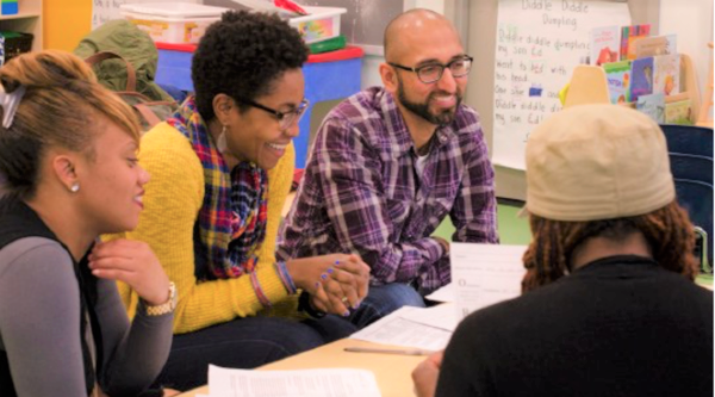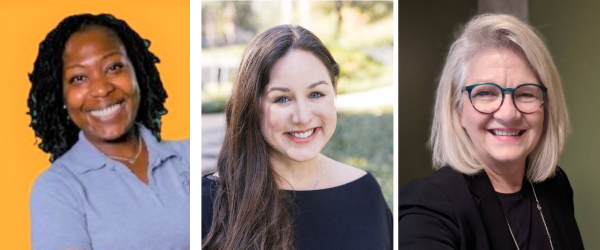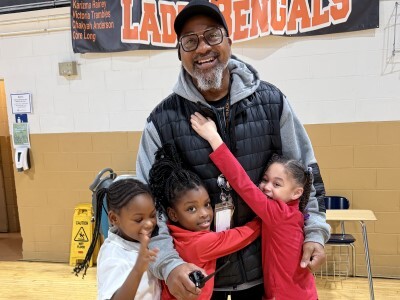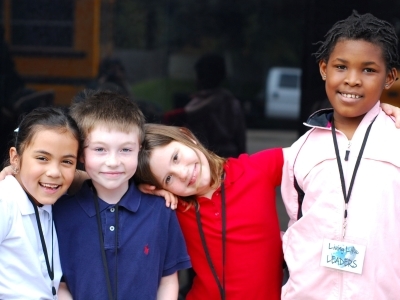Creating a Culture of Wellness Using School and District Leader Circles
Topics

When educators design and create new schools, and live next gen learning themselves, they take the lead in growing next gen learning across the nation. Other educators don’t simply follow and adopt; next gen learning depends on personal and community agency—the will to own the change, fueled by the desire to learn from and with others. Networks and policy play important roles in enabling grassroots approaches to change.
A culture of wellness prioritizes safety, healing, and connection alongside academic learning in schools. And it gets a boost when educators and school leaders practice wellness themselves.
As facilitators dedicated to supporting educators and school leaders, we understand the critical role that wellness plays in sustaining human-centered leadership. Recently, we had the privilege of leading a session on centering wellness for leaders in education, and we left feeling both inspired and affirmed in the need for spaces where educators can process, heal, and grow together.
In our session, we explored what it means to create a culture of wellness in schools—one that prioritizes safety, healing, and connection alongside academic learning. The truth is, if educators are not well-supported, if they are burned out and overwhelmed, they cannot show up fully for their students and colleagues. In this culture of wellness, leaders can engage in self-regulation, reflection, and meaningful dialogue about their well-being.
Educators deserve the same level of care and compassion that they pour into their students every day.
One of the most powerful moments of our session was a mindfulness exercise called “Doodle Your Sparkle.” We invited participants to reflect on a moment of joy from their week and then, instead of simply writing about it, they sketched it. One of us drew a sunrise—a symbol of the encouragement felt when an educator shared how a breathing exercise had made a real difference in their classroom. It was a reminder that small moments of connection and recognition can be sustained. When educators take time to acknowledge these moments, they build resilience and reinforce the importance of prioritizing their own well-being.
To build on these moments of connection, we emphasize the sustainability that can result from leadership wellness circles—intentional spaces where school leaders and educators can come together to support one another. These circles provide a place to process the realities of trauma exposure, acknowledge the emotional burdens they carry, and develop sustainable strategies for well-being. Educators often take on the emotional burdens of their students and colleagues, sometimes without realizing the toll it takes on their own well-being. By coming together in a leadership wellness circle, they can reflect on these challenges and build a supportive community.
These wellness circles also provide opportunities for professional growth. When leaders participate in structured discussions around wellness, they not only improve their own mental health but also bring those insights back to their schools. They become role models for their staff and create a ripple effect that benefits the entire school community. This shared commitment to well-being fosters a culture where educators feel valued, heard, and empowered to sustain their passion for teaching and leading.
And when they prioritize their own wellness through leadership wellness circles, they model for their students what it truly means to thrive.
One of the biggest takeaways from our session was the importance of shifting from judgment to curiosity. Instead of immediately reacting to a student or colleague’s behavior, we encouraged participants to pause and ask, “What’s going on beneath the surface?” This simple shift in perspective can open up opportunities for deeper understanding and connection, reinforcing the role of wellness circles as a space for learning and growth. By cultivating a mindset of curiosity, we move away from reactive decision-making and towards more empathetic and thoughtful leadership.
As we continue this work, we recognize that wellness is not about eliminating stress altogether—that’s impossible. Instead, it’s about creating an environment where educators can navigate stress in healthy, sustainable ways. This means supporting individual wellness, fostering collective care within school communities, and advocating for systemic changes that make well-being a foundational part of education. When wellness is prioritized, we create schools that are not only academically successful but also emotionally and socially thriving spaces for both educators and students.
If there’s one thing we hope participants take away, it’s this: educators deserve the same level of care and compassion that they pour into their students every day. And when they prioritize their own wellness through leadership wellness circles, they model for their students what it truly means to thrive. By committing to this work, we can create a future where educator well-being is not an afterthought, but a cornerstone of a thriving and sustainable educational system.
Listen to Stephanie, Tara, and Vickie Discuss Leadership Circles
NGLC is grateful for our collaboration and partnership with EDU Café Podcast that brings fresh voices and insights to the blog. Listen to the full episode of the podcast that inspired this article:
Photo at top courtesy of Two Rivers Public Charter School.

The authors: Stephanie McGary, Tara Becker, and Vickie Echols




